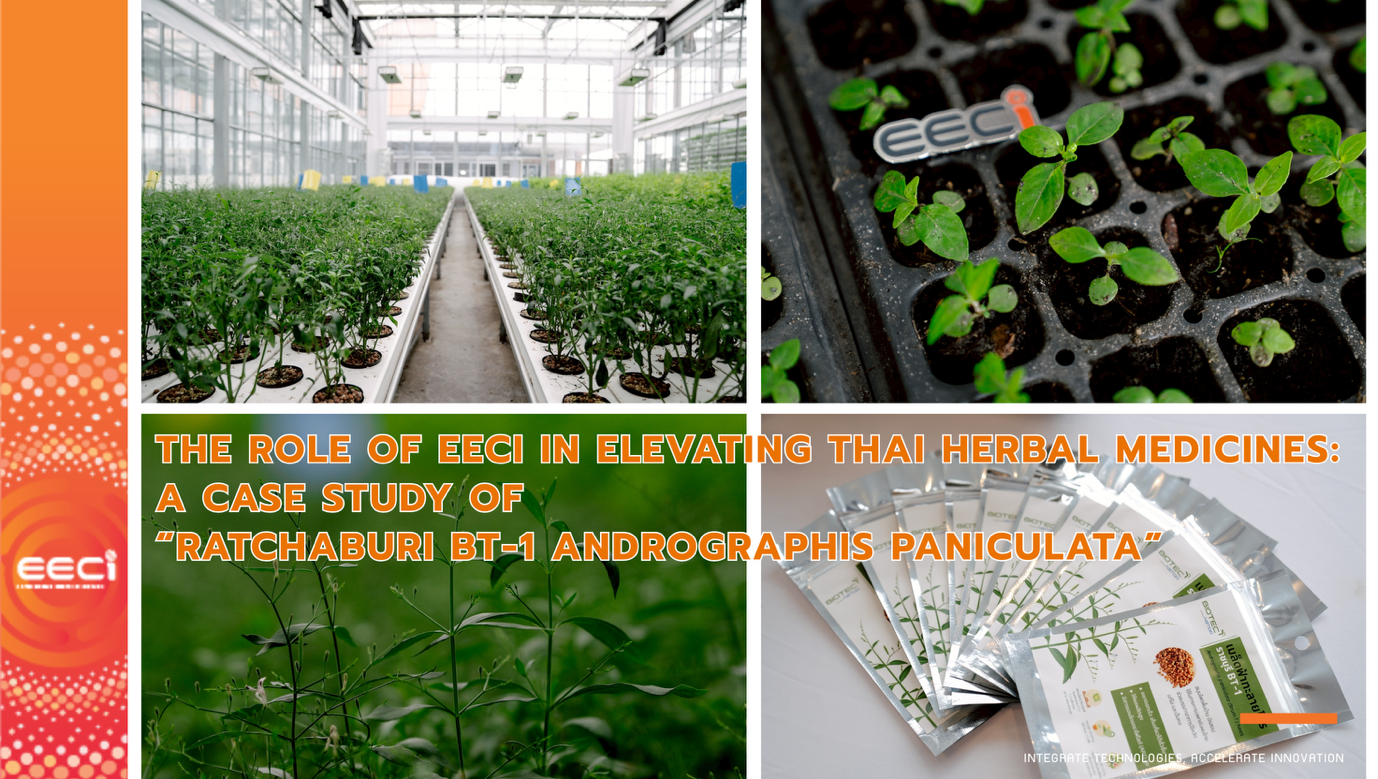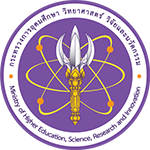The Role of EECi in Elevating Thai Herbal Medicines: A Case Study of “Ratchaburi BT-1 Andrographis paniculata”
Post Date : 13 August 2025

“Ratchaburi BT-1 Andrographis paniculata” is a research achievement by BIOTEC, NSTDA, aimed at developing Thai herbal medicines to meet international standards through the application of science, technology, and innovation. This variety stands out with its high yield of 5,000–6,000 kilograms per rai per year, allowing for 4–5 harvests annually with a short cultivation period of just 90–110 days after sowing. Importantly, it contains a high amount of andrographolide (AP1) at 34–40 milligrams per gram of dry weight. Andrographolide serves as a “marker compound” for quality standardization of Andrographis paniculata, requiring a specified content in pharmaceutical and herbal products to ensure efficacy and safety. It is also used as a raw material in the pharmaceutical and health supplement industry worldwide.
One of the key areas for trial and expansion of this cultivation is the “Smart Greenhouse” at EECi BIOPOLIS, Wang Chan District, Rayong Province. This controlled environment greenhouse—regulating light, temperature, humidity, and automatic irrigation—enables yields 2–3 times higher than conventional methods and supports year-round cultivation. It leverages an integrated technology system throughout the process, from seeding, care, and monitoring to harvesting and post-harvest management to produce high-quality herbs ready for export.
BIOTEC, NSTDA, and EECi also collaborate with the Rayong Agricultural Promotion and Development Center to transfer expertise and farming technology for high-quality Andrographis paniculata. This supports quality seed and herbal production, serving as the upstream sector of the Thai traditional medicine industry. In addition, they work with Wang Chan Hospital to produce dried Andrographis paniculata and herbal capsules for treating patients in the community.
EECi BIOPOLIS serves as an integrated agricultural innovation infrastructure hub, covering the entire chain from upstream to downstream, such as:
- Phenomics Greenhouse: Real-time monitoring of plant responses to environmental factors, enabling precise breeding and significantly reducing research and testing time.
- Plant Factory: A model site for developing and producing high-value crops such as herbs and safe vegetables in controlled environments, helping farmers access technology and reduce costs.
- Smart Greenhouse: Automated environment control using IoT for consistent, high-quality yields.
- Biorefinery Pilot Plant: Supporting businesses in scaling up biobased feedstock production from laboratory to semi-industrial levels.
- Plant Cell Technology and Tissue Culture Laboratory: Facilitating mass propagation of economic and high-value plants with stability and disease-free assurance.
The Eastern Economic Corridor of Innovation (EECi) thus functions as a national innovation infrastructure, supporting the scaling-up of research outputs, technological trials and demonstrations, feasibility assessment in both technological and economic aspects, as well as the adaptation and localization of advanced foreign technologies for practical use in Thailand. This creates new economic opportunities for the country and strengthens the Thai bioindustry and agriculture in a sustainable practice.
EECi #Biopolis #AndrographisPaniculata #RatchaburiBT1 #ThaiHerbs #MedicinalPlants
HerbalInnovation #Biotechnology #AgriculturalTechnology #SmartGreenhouse
HerbalIndustry #ThaiTraditionalMedicine #HerbExport #HighYieldHerbs #Andrographolide



